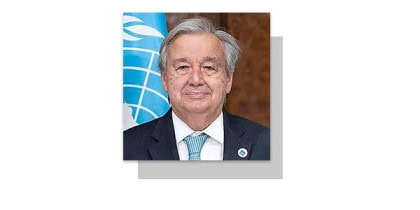On this World Youth Skills Day, we are reminded of the immense potential Pakistan’s youth hold—and the urgent need to equip them with the right skills, opportunities, and protections to thrive in today’s fast-changing world of work.
Pakistan’s youth population (aged 15–24) stands at 41.8 million—18.8% of the total population—making it the second-largest demographic group in the country. Yet, the challenges are significant: the youth unemployment rate is nearly double the national average at 11.1%, and one in three young people is not in education, employment or training (NEET). The disparity is especially stark for young women, with 55.3% classified as NEET compared to just 10.5% of young men. Informal work remains the norm—95.2% of young working women and 91.4% of young men are in the informal economy.Access to technical and vocational education remains limited. According to the Pakistan Bureau of Statistics and NAVTTC, fewer than 6% of young people have received TVET training, and only 2.5% have had access to on-the-job training. Female participation in TVET programmes is just 35%, and rural areas continue to be underserved. Digital skills are increasingly sought after—57% of employers cite them as essential—but nearly half of the population still lacks internet access, further deepening inequality.At the International Labour Organization, we believe that Pakistan’s youth can reach their full potential through sustained investment in quality skills development, inclusive education and employment policies, and robust social protection systems. As a pathfinder country under the UN’s Global Accelerator on Jobs and Social Protection for Just Transitions, Pakistan has shown strong commitment to promoting youth employability—particularly by investing in training for sectors with job creation and export potential.Young people today face intersecting challenges—from climate change and digital disruption to conflict and economic uncertainty. ILO’s emphasis on Just Transitions for youth is aimed to (i) promote green jobs for youth; (ii) provide youth with relevant skills and training; (iii) foster opportunities for green youth entrepreneurship; (iv) ensure fair wages, decent working conditions, and social protection; and (v) strengthen the voice of youth in decision making.Skills development plays a vital role in unlocking productivity, advancing sustainable development, and reducing poverty. But the benefits of skills development remain unevenly distributed—especially for marginalized groups—due to gaps in access, quality, and market relevance. With Pakistan’s economic outlook still under pressure, supporting young people is not only a moral imperative—it is a strategic one.The ILO’s global framework for youth skills development is rooted in inclusive, lifelong learning. It promotes high-quality apprenticeships and work-based learning, aligned with labour market needs, and strengthened by partnerships between governments, employers, workers’ organizations, and training providers. It also prioritizes gender-responsive and discrimination-free training environments, along with targeted support for MSMEs and disadvantaged youth, especially young women.This World Youth Skills Day, let us reaffirm our commitment to investing in the potential of Pakistan’s youth—so that every young person, regardless of gender or background, has the tools they need to build a better future. The ILO stands ready to work alongside our partners to ensure that no one is left behind.













